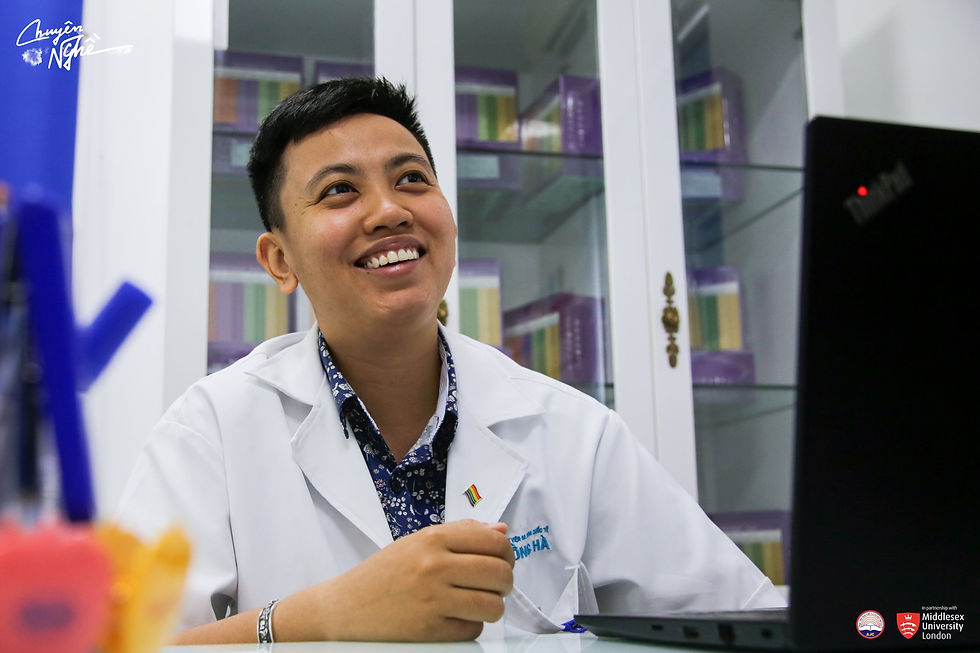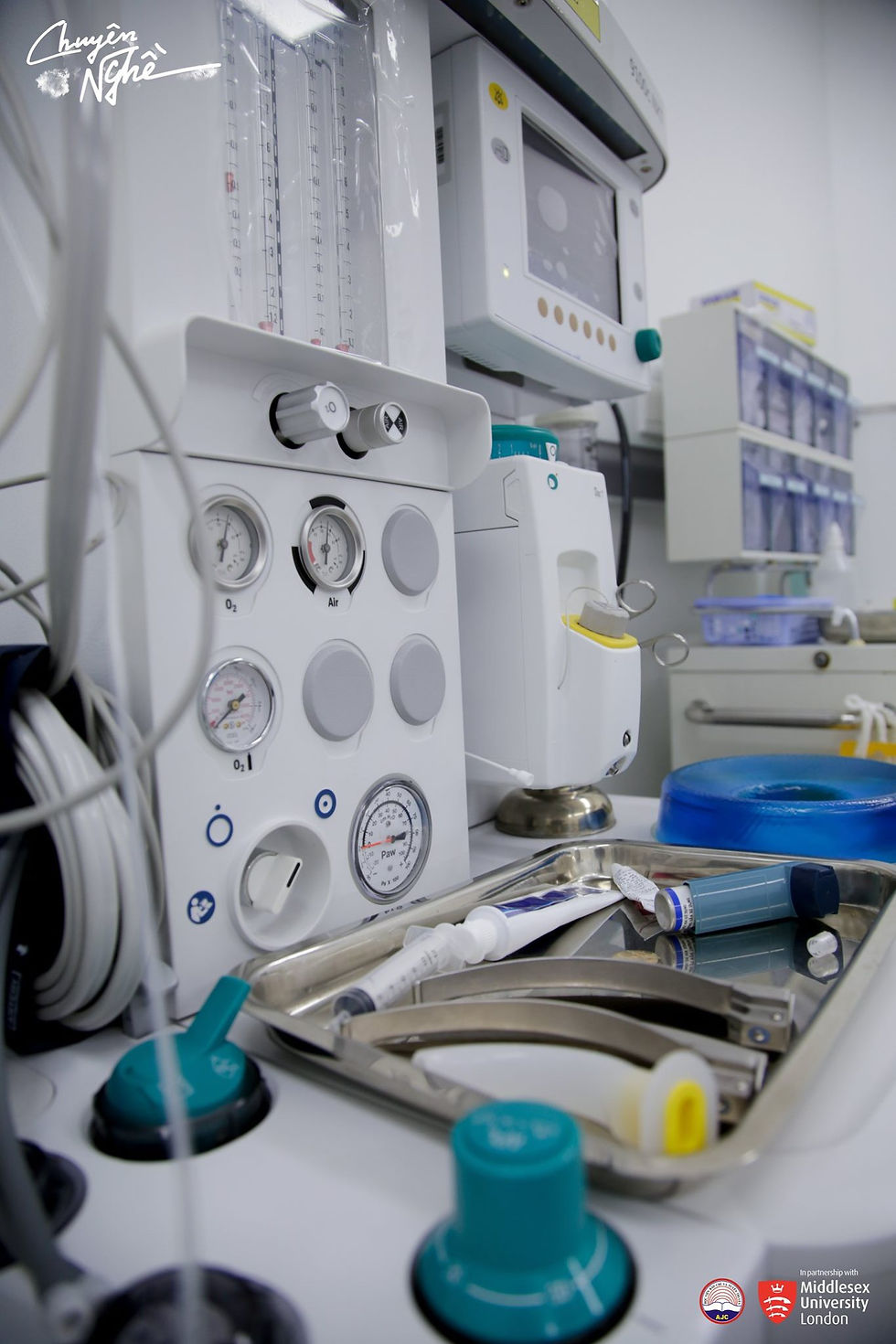Johnny Chen: Learning to Adapt, One Step at a Time
- Ly Hoang

- Jan 21, 2020
- 4 min read
“Don’t change too suddenly, your family will be shocked, and you’ll be the one who suffers most.”
That was one of the first things Johnny Chen told me. He’s a plastic surgeon, founder of the Hong Ha LGBT Aesthetic Surgery Center, and someone who’s spent years guiding people through the messy, complicated process of coming out. And if I had to choose one word for him, it would be adaptation.
Johnny has adapted to the body he was born with but didn’t feel at home in. He’s adapted to his family’s doubts, society’s expectations, and now even the challenges of running a hospital. The way he tells it, nothing in his life has been about rushing, it’s always been about patience, steady change, and letting people come along at their own pace.

Small Changes, Big Shifts
Johnny wasn’t always “Johnny.” He was born with the name Tran Bich Chau, one of the girliest names in the Vietnamese language. When he realized this wasn’t who he truly was, he didn’t storm into the living room one day and declare it. He started small.
“I began with my hair,” he laughed. “Each cut was just a little shorter than the last. Then my clothes changed, slowly, women’s clothes, then unisex, then tomboy, and eventually men’s.”
His family didn't didn’t explode with anger, but they didn’t embrace that either. There were comments, little lectures about “how ladies should dress.” He nodded, carried on, and trusted time to do the persuading. And slowly, over the years, it did. His family adapted with him, learning to accept the son they hadn’t expected but had always had.
From ICU to Operating Room
Work, as it turns out, demanded just as much adapting. Johnny started in ICU at FV Hospital, an international environment where he learnt confidence from mentors and patients alike. Later, after studying and working abroad, he found himself juggling a very different role back in Vietnam: not just as a doctor, but as a hospital operator, mentor, and manager, all by the age of 31.

Later came postgraduate study in Canada, research in Singapore, and eventually the daunting responsibility of running a specialized centre back home in Vietnam. By 31, Johnny found himself in a role that demanded both medical expertise and administrative leadership, in a system where regulations, standards, and expectations don’t always line up neatly.

He admits it hasn’t been easy. Every country has its own medical rules, every hospital its own culture. To survive, he constantly studies, asks questions, and learns from senior mentors. And at Hong Ha, he takes this further: training staff not only in medical procedures but also in something less tangible — the right words, the right gestures, the right way of meeting LGBT patients with respect.
The Patient Who Said Nothing
Out of all the stories Johnny shared, one patient stuck with me.
A young trans man, pressured into marriage and even parenthood, had cut himself off entirely from family and friends. When his parents first brought him to Johnny, he sat in silence. Two full sessions passed where Johnny was the only one speaking.

“So I asked for his Facebook,” Johnny told me. “I started chatting outside the hospital, slowly, as a friend rather than a doctor. Then I arranged to see him without his parents present.”
It wasn’t only about gaining the young man’s trust. Johnny also had to patiently guide the parents, explaining that loving women isn’t a disease. Over time, tiny cracks of understanding opened up — enough, at least, to begin rebuilding.
A Long Road, Not a Sprint
What I took away from our conversation is this: coming out isn’t a sprint. It isn’t about one grand announcement, no matter how tempting that sounds. It’s about steady steps that leave room for everyone to catch up.
“If your family is open-minded, the process can be quicker,” Johnny said. “If not, prepare for a long journey. Especially if you’re still in school, focus on finishing your studies, finding stability. Show your family you can take care of yourself. That’s when acceptance often follows.”
Johnny’s life is a reminder that adaptation doesn’t mean watering down who you are. It means building enough space for others, our parents, colleagues, patients to move towards you at their own pace.
And maybe that’s why his story stayed with me long after our chat: because it’s proof that sometimes the slow path really is the strongest one.



Comments